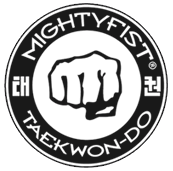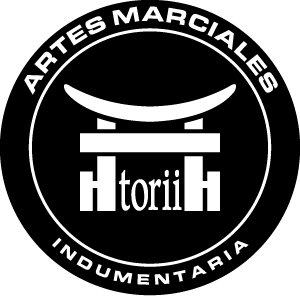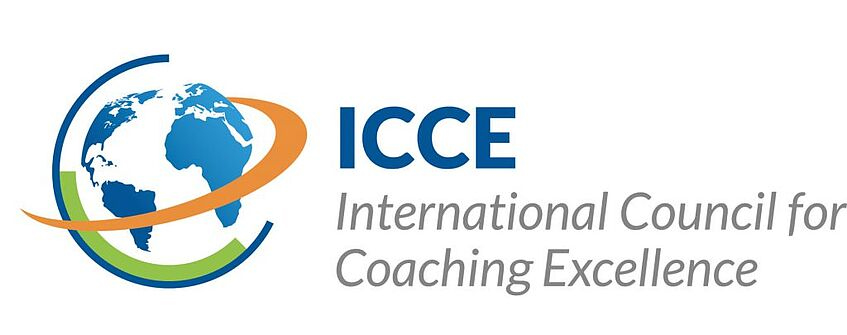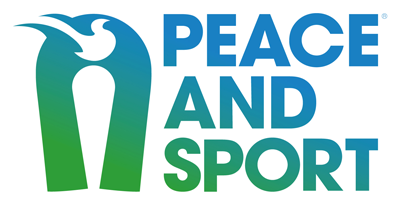Why Do We Practice and Teach ITF Taekwon-Do?
I would like to begin this message by telling you a story: the king and his master:
Long ago and far away, there was a peaceful kingdom. Because their king was a good king, the people in the kingdom were prosperous and happy. Unfortunately, the good king suddenly became ill and died.
His only son, who was still a very young man, became king. But the young king knew he was not ready for the responsibilities of ruling the kingdom. He worried that he would make mistakes that would affect his people.
There were many individuals at the court who were happy to offer advice to the king. One of them even suggested that the king should agree to let him rule the kingdom as Regent until the king was old enough to rule.
The young king was confused. Whom could he trust? He asked his Mother who suggested he consult his old teacher, a very wise man who had retired to live a life of contemplation on the top of a mountain very far away. Elaborate preparations were made for the trip and after a long, arduous journey, the king finally reached the mountain top.
The sage and the young king greeted each other with appropriate protocol and, when that was completed, the sage asked: “Majesty: You are now king of the kingdom. Why are you here visiting me and not back at court governing the country?”
The young king explained that he wanted to be able to depend on a good counselor but did not know whom to choose. He showed his old teacher documents detailing the experience and qualities of each of the candidates and asked for advice.
The teacher examined the documents and put them aside. He said simply: “You are the king. You must decide.”
The young king explained that he was very young and did not have enough experience to choose wisely. “I know that you are a wise man”, he said, “That is why I am asking for your help.”
But his teacher replied, “I will not do it for you”. Then he closed his eyes and started to meditate. The young king was very disappointed. Several hours later, when the wise man opened his eyes the young king was still there, kneeling before him.
The old man ordered the king to go away, but the king said he would not go until his teacher helped him to make a decision. He pleaded, “Help me for the good of the kingdom!” Seeing that his former student was sincere and would not leave until he had an answer, the wise old teacher finally said, “I will not decide which person you should choose but, since you insist, I will give you some advice. I hope you will then be able to make the right choice.”
The wise teacher asked the king to look again at the documents describing the candidates and identify those who were not able to attend court regularly because of poor health. Realizing that they would not be able to act as his counselor, the king eliminated three of the twelve candidates on this basis.
Next the wise teacher asked the king to name the most important issues for the kingdom. The king replied that he wanted to improve the system of education in the country and provide better living conditions for the people, particularly in the rural areas. He also mentioned the importance of having a strong army. “You have observed how your father ruled the kingdom and I am certain you know what qualities and characteristics are required for your counselor”, said the wise old man.
The king understood that he needed to be able to rely on the competence of his counselor and eliminated the six candidates who would not be able to help him achieve his goals. “But how am I to choose among the three who are left?”, he asked. The old man responded by asking more questions: “Who always shows respect for the king? Who is truly devoted and trustworthy? Whom can you rely on to defend the kingdom? Who will not betray you to your enemies for his own personal gain?”
The young king thought about those questions and finally understood: He needed a counselor with good solid values. There was only one candidate he could really rely on, so after thanking the wise man profusely the king returned to the palace and announced his decision. With precious guidance from his old teacher, the young king had learned how to make a judicious and wise decision.
The counselor served the king faithfully for many years. During the king’s long reign, the kingdom became even more prosperous and the people were very happy.
This is a story I was told soon after I started studying Taekwon-Do when I was a young person in Vietnam. I have always remembered the story and the criteria the young king used to make a wise decision.
I have been telling this story to my students for more than thirty years, and it was included in a French publication titled L’Avis philosophique (prepared in collaboration with Ms Micheline Lefrançois and Dr. Jean Brunelle of Laval University and published in 1987).
I have applied the same criteria when making decisions about the people in my personal and business life, realizing how important it is to surround myself with people who share my values and will help me achieve my goals. The people we spend time with can have a negative or positive effect on our lives, so we need to choose our friends and business partners carefully.
Why am I telling you this story?
In my previous message I talked about Taekwon-Do as a martial art and explained that unfortunately there are still many who have not understood the essentials of Taekwon-Doas a true martial art. I am telling you this story now is because I want to remind everyone – but especially our ITF teachers – of the importance of focusing on the basic objectives of practicing Taekwon-Do.
In the story, the wise old teacher did not tell the young king what to do. Instead, he helped him to understand how to make good decisions based on principles and basic values. You will recall that the king realized that the person he chose as his counselor must be reliable, competent to run the country and lead the army, and share his belief in good values.
These criteria correspond to the three basic objectives of practicing Taekwon-Do that will help us to become better people:
- to improve our physical conditioning,
- to achieve competence in Taekwon-Do techniques and self-defense skills,
- to work to improve our personality by applying the ITF human values ( the Do).
Examining the Three Objectives
Let’s look at each of these objectives more closely:
- to improve our physical conditioning

Stretching exerciseITF Taekwon-Do is a form of physical conditioning that respects the nature of the human body, involves the whole body, and is appropriate for all ages. It is a complete exercise, particularly with the SINE wave. Over the years, Taekwon-Do training has evolved and improved. It creates a feeling of physical wellbeing that enables us to be successful and build a better life.
With good teaching and serious training, anyone can improve their physical condition by practicing Taekwon-Do, mastering the techniques and learning self-defense skills, but to reap the full benefits of Taekwon-Do, students must be diligent and train regularly. Even those who have been practitioners for many years understand the necessity of regular training to maintain their physical condition and enjoy all the benefits of Taekwon-Do.
- to achieve competence in techniques and self-defense skills

Dynamic training with equipmentMastering Taekwon-Do techniques should certainly be a goal for Taekwon-Do students, but the ability to defend effectively yourself is also very important.
In fact, General Choi Hong Hi wrote that earning a Black Belt in Taekwon-Do indicates that the student is capable of defending himself. We should certainly not neglect self-defense skills. The techniques are practical and can be adapted to the student’s age and physical condition.
Training in ITF Taekwon-Do should be according to the Circle of Training introduced by the Encyclopedia written by our Founder, General Choi. This will ensure the student achieves the proper balance of the various aspects of Taekwon-Do.
- to work to improve our personality by application of ITF human values

Theory classITF Taekwon-Do is an excellent product that we are proud to promote because it responds to the basic need of humans for healthy physical activity but also because it teaches the Do, the philosophy that is based on universally-recognized values. The first two objectives correspond to the physical side – the Tae and Kwon – while this third objective corresponds to the Do. As Taekwon-Do practitioners we have the advantage of studying the Taekwon-Do philosophy developed by our Founder and learning how to apply it in our daily life. This helps us to achieve balance in our life.
Here is an example to illustrate this point: A competitor can prepare for a Taekwon-Do competition by training regularly, mastering the techniques, practicing patterns, free sparring and/or breaking techniques and getting mentally ready to face opponents. After working so hard, he would no doubt believe he is completely ready to compete. However, if he is not guided by the principles of the Do and his only goal is to win medals, he could react like the Cuban competitor at the recent Olympic Games who brought disgrace on himself and on his sport by his unethical behavior.
In recent years the ITF has encouraged its teachers to put more emphasis on the Do, teaching their students the Taekwon-Do way of life. We have introduced a program for teaching the Do. This program is based on the tenets of Taekwon-Do: courtesy, integrity, perseverance, self control, and indomitable spirit. Students learn how they can work to build a better world with peace, justice, and freedom – fulfilling the promise we make each time we repeat the ITF Taekwon-Do Student’s Oath. The Do is not a theory that we learn just to pass an exam. It is a source of guidance that will help us make wise decisions. Indeed, what we learn in Taekwon-Do can help us to improve every aspect of our life.
Living the Taekwon-Do way of life will make us aware of the need for balance and give us the ability to make wise decisions based on our principles. By teaching all four aspects of Taekwon-Do – not teaching it only as a sport or as a method of physical conditioning – our teachers are helping their students to benefit fully from practicing Taekwon-Do.
Courtesy Expressed as Respect for Protocol
You may have noticed that in the story about the young king he and his former teacher greeted each other with appropriate protocol. Only when that was completed did the wise old man ask the king the purpose of his visit. By complying with protocol, each of them was expressing his respect. The young king was expressing his respect for the knowledge and wisdom of his former teacher, while the sage was expressing his recognition of the fact that his former student was now the king.
The first tenet in ITF Taekwon-Do is “courtesy” which is often expressed as “respect”. One way we show respect in Taekwon-Do is by complying with protocol. Protocol is a way of showing our respect for everyone: our fellow students, our competitors and the umpires at tournaments, and especially for our teachers.
Why did the king’s mother suggest that he consult his former teacher? Why did the king make a long, arduous journey to seek his advice? No doubt they both knew from previous experience that the former teacher was a wise man who could be depended on to offer good advice. He had earned their respect by his actions.
Like the wise old man in the story, our teachers are passing on their knowledge to their students. Teachers set a good example by showing respect for others. But, like the wise old man, they need to earn the respect of their students. By sharing their superior knowledge and demonstrating their competence, they will earn that respect.
Conclusion:
Taekwon-Do, the physical aspects and the philosophy, is a complex subject, and it continues to evolve. I am happy to say that after more than forty years as a student of ITF Taekwon-Do, I am still learning about the various aspects of Taekwon-Do.
I decided to write about this important subject now because many of our ITF schools around the world will be starting a new session in September and I wanted to remind our ITF Taekwon-Do teachers of the importance of concentrating on the three basic objectives allowing us to become better people:
- to improve our physical conditioning,
- to achieve competence in Taekwon-Do techniques and self-defense skills,
- to work to improve our personality by applying the basic human values prized in the ITF philosophy and our tenets.
Our ITF teachers have many responsibilities. They need to attract new students, keep up to date on techniques and teaching methods, adapt their teaching to the needs of their students, make their classes interesting, provide motivation when students get discouraged, and set a good example for their students.
By emphasizing these basic objectives our teachers will ensure that their students benefit fully from living the Taekwon-Do way of life.
and working to improve ourselves every day.
Sincerely yours,

Master Trân, Triêu Quân
ITF President
Québec, Canada – September 9th 2008
* illustration taken from the tale: Dorani Book: Mythes et légendes du monde Atlas junior. Éditions Atlas, 2005
















